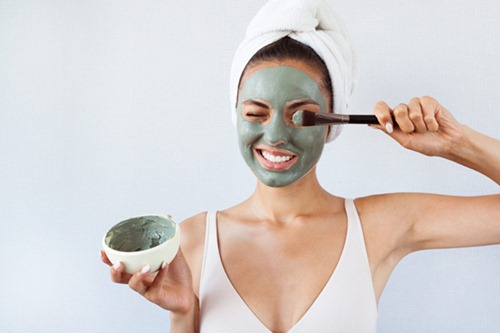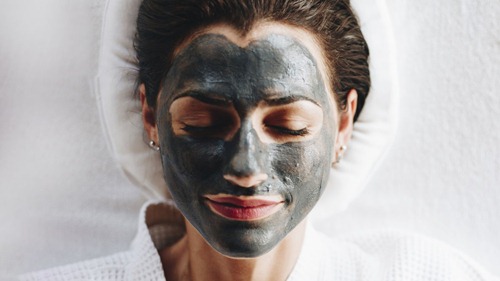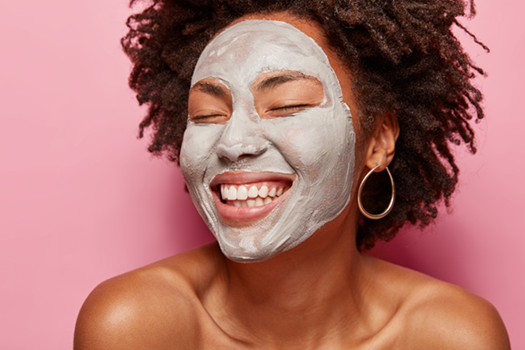When it comes to beauty and skincare routines, face masks have become an essential component for getting that coveted radiant complexion. Among the various options available, clay masks and charcoal masks have gained huge popularity for their purported purifying and detoxifying properties. Let’s dive into the important differences and benefits of these two mask types.
Clay Mask vs Charcoal Mask: Choosing the Right Mask for You
The choice between a clay and a charcoal mask depends on your preferences and specific skincare needs.
- If you’re looking for a time-tested remedy with oil-balancing benefits and gentle exfoliation, a clay mask might be your go-to.
- On the other hand, if you’re seeking a deep detox and battling stubborn blackheads, a charcoal mask could be your ally.
Clay Masks: The Time-Tested Elixir

Clay masks have been used for centuries for their natural healing and cosmetic benefits. Derived from mineral-rich earth deposits, such as kaolin, bentonite, and French green clay, these masks offer a wide range of benefits:
- Exfoliation: The texture of clay itself delivers gentle exfoliation, promoting a smoother complexion and removing dead skin cells. This exfoliating effect can reveal more youthful-looking, brighter skin.
- Deep Cleansing: Clay masks are known for their exceptional ability to draw out toxins, excess oils, and impurities, from the pores and skin’s surface. They provide a deep cleanse, which can help minimize pore appearance and prevent breakouts.
- Soothing Properties: Many clay masks contain natural compounds and minerals that offer soothing effects, making them ideal for sensitive skin types as well.
- Oil Balancing: Clay masks are particularly beneficial for people with combination or oily skin. They help control sebum production, leaving the skin with a balanced and matte finish.
Charcoal Masks: The Modern Detoxifier

Activated charcoal has become a very popular in the beauty industry due to its unique ability to adsorb impurities and toxins. Charcoal masks, frequently combined with other skin-loving ingredients, offer several advantages:
- Blackhead Removal: Charcoal masks are specially praised for their potential to remove blackheads. As the charcoal mask dries and is peeled off, it can pull out embedded debris from pores.
- Deep Purification: Activated charcoal acts like a magnet for bacteria, pollutants, and dirt, making it an effective choice for reducing congestion and detoxifying the skin.
- Brightening Effect: By promoting skin cell turnover and removing impurities, charcoal masks can contribute to a more even and radiant skin tone.
- Clarification: Charcoal masks can help improve overall skin texture and refine the appearance of pores, leaving the complexion looking more refined and smoother.
What are the key differences between clay mask and charcoal mask?
- Clay masks use mineral-rich clays to absorb impurities and excess oil, making them suitable for acne-prone and oily skin.
- Charcoal masks contain activated charcoal to deep-clean pores and draw out toxins.
- While both detoxify, charcoal masks excel in purifying pores, while clay masks focus on oil control.
More
Are there any potential drawbacks or precautions to consider when using clay masks and charcoal masks?
Yes, both charcoal masks and clay masks can be drying if overused, so it’s crucial to follow usage instructions. People with dry or sensitive skin should be cautious and conduct a patch test. Also, avoid leaving the masks on for too long to prevent skin irritation.
How often should I use charcoal masks and clay masks and to maintain balanced and radiant skin?
For most skin types, using a charcoal mask and clay mask once or twice a week is sufficient to maintain radiant and balanced skin. Overusing these masks can lead to irritation or excessive dryness. Adjust frequency based on your skin’s response.
How does the application process of a charcoal mask differ from that of a clay mask?
The application process for a charcoal mask and a clay mask is generally similar. Both mask involve cleansing the face first, applying an even layer of the mask, and waiting for it to dry before rinsing off. However, charcoal masks are peeled off once they’re fully dry, while clay masks generally need to be removed when they start to feel tight. For best results, always follow the instructions provided on the product.
Which type of mask, a charcoal mask or a clay mask, is more effective in reducing excess oil and minimizing pores?
Both charcoal masks and clay masks are effective in minimizing pores and reducing excess oil, but clay masks are usually more focused on oil control due to their absorbent properties. They can help draw out impurities and excess oil from the skin’s surface. Charcoal masks also work well for deep cleansing and pore-minimizing, but their main strength lies in their ability to pull out toxins and impurities from deep within pores. It’s a matter of your skin’s specific needs and personal preference when choosing between the two.
In terms of detoxification, which one is more suitable: a charcoal mask or a clay mask?
Both charcoal masks and clay masks are suitable for detoxification, but charcoal masks are frequently considered more effective due to the adsorptive properties of activated charcoal.
Charcoal has the ability to bind to toxins and impurities, helping to draw them out from the skin. This makes charcoal masks a popular choice for detoxifying the skin and deep cleansing.
Are there any potential interactions between using a clay mask and a charcoal mask in the same skincare routine?
Using a charcoal mask and clay mask a in the same skincare routine should usually be fine, as long as you don’t overdo it. However, to prevent irritation or excessive drying, it’s best to alternate between the masks on different days and to follow the recommended usage instructions for each product.
Final Thoughts
Both charcoal masks and clay masks offer their own set of advantages, providing effective solutions for different skincare concerns. Incorporating these masks into your beauty routine can improve your skincare regimen and bring you closer to achieving a more radiant, healthier, and a clearer complexion. Remember, it’s very important to select a mask that aligns with your concerns and skin type to reap the maximum benefits and enjoy a pampering self-care experience


